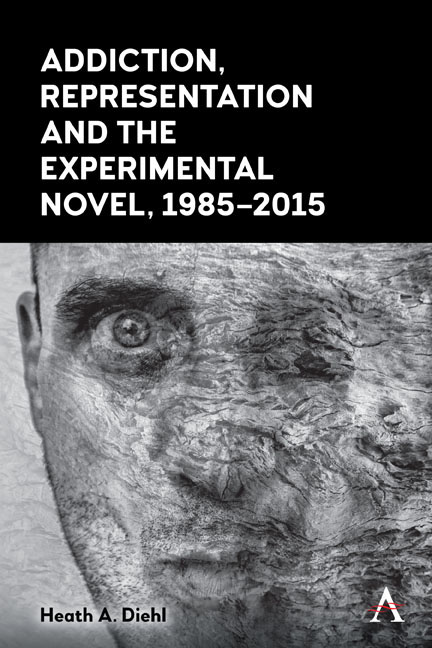2 - Betraying: Dope (2006)
Published online by Cambridge University Press: 25 January 2021
Summary
Just as Leaving Las Vegas initially appears simply to recapitulate the topical, formal and ideological prescriptions of the Western addiction novel, so, too, does Sara Gran's Dope (2006) at once seem a virtual carbon copy of such classic roman noirs as James M. Cain's The Postman Always Rings Twice (1934), Patricia Highsmith's Strangers on a Train (1950) and Jim Thompson's The Killer Inside Me (1952). Like its literary forebears, Dope invites readers into “a negative utopia, a world stripped of all ethical values and inhabited by marginalized characters, who find it extremely difficult to apply the morals of the dominant class to their own action.” The marginalized character at the center of Dope is Josephine “Joe” Flannigan, a character that, given her former heroin addiction, as well as her questionable work history, which includes both grifting and prostitution, stands as one of the myriad noir “characters who live in a hostile or violent world where traditional moral codes do not always have the significance they are supposed to have.”
The hostility and violence that typify the mood of noir fiction are underscored in Dope by the ongoing antagonism between Joe and members of the New York City police force. Coerced into looking into the disappearance of a young, middle-class drug addict by the promise of a big payday, and then implicated in the murder of Jerry McFall, the young woman's dealer boyfriend, Joe spends much of the novel on the wrong side of a corrupt law enforcement that seeks to frame her for a crime that both she and readers know she did not commit. This conflict breeds within both the protagonist and Gran's readers the type of “isolation, fragmentation, alienation, and distrust in official institutions and values” that Jopi Nyman, in Men Alone: Masculinity, Individualism, and Hard-boiled Fiction (1997), regards as a defining characteristic of the roman noir. At the same time, this conflict forces Joe to “[operate] outside and above the law [s] he professes to defend,” another defining characteristic of the noir form. By forcing characters (and readers) to exist outside of conventional ideological and social structures, noir fiction “projects a vision of a world filled with betrayal and deception” and encourages readers to consider “the price of law and order, the gap between the law and substantive justice and the impossibility of easy moral distinctions.”
- Type
- Chapter
- Information
- Publisher: Anthem PressPrint publication year: 2020



